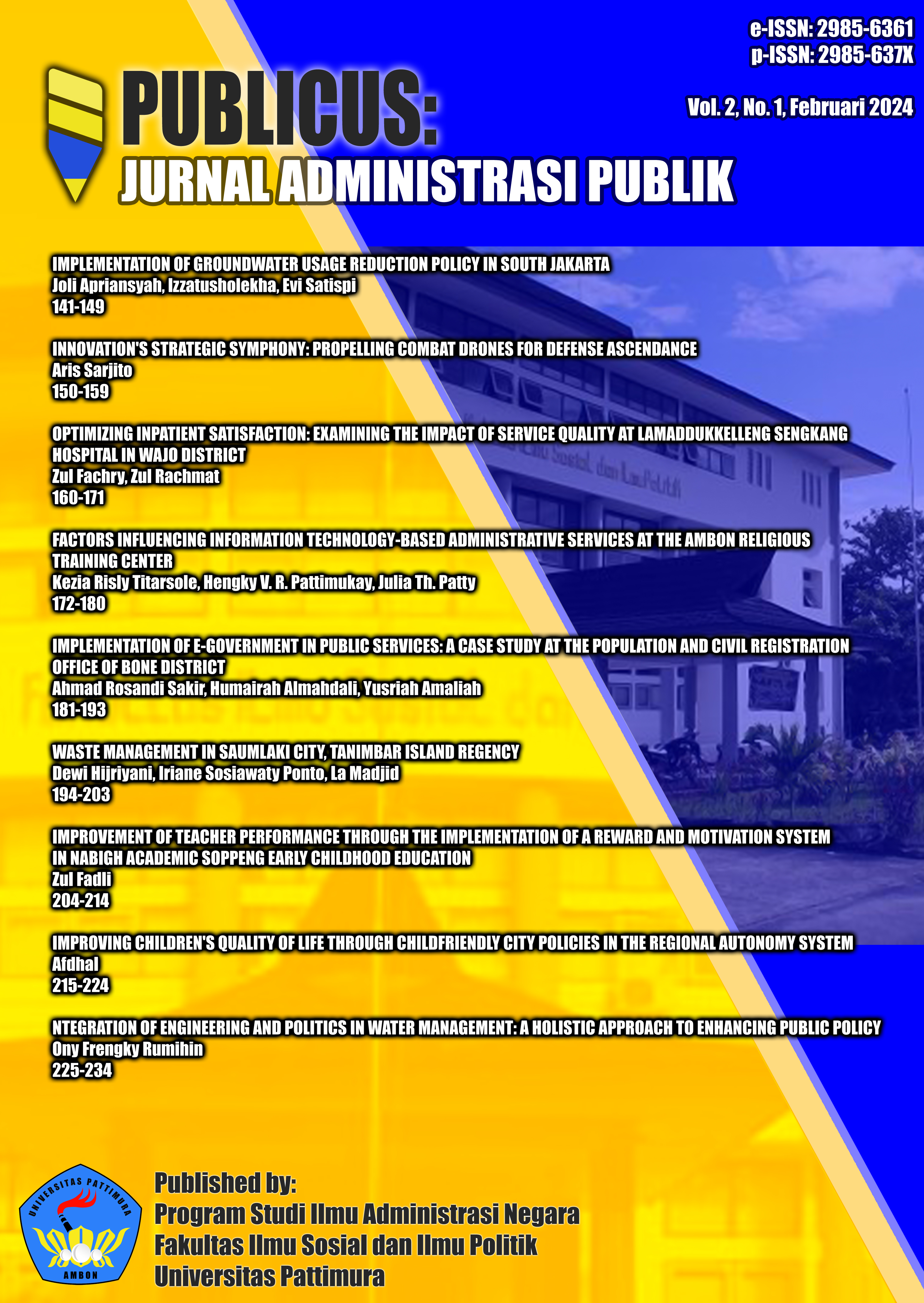IMPROVING CHILDREN'S QUALITY OF LIFE THROUGH CHILD-FRIENDLY CITY POLICIES IN THE REGIONAL AUTONOMY SYSTEM
Abstract
This article examines the issues of children's quality of life in Indonesia, particularly in cities that are not conducive for children, characterized by a high level of violence against children, inadequate infrastructure meeting children's needs, and low stakeholder involvement in policies and child protection in those cities. The research aims to describe efforts to improve the quality of life for children through the implementation of child-friendly city policies within the framework of regional autonomy. The research methodology employed a qualitative approach, utilizing literature reviews and policy studies. The results of this study indicate that efforts to enhance Child-Friendly Cities within the regional autonomy policy framework involve the development of policies, programs, strategies, and development activities prioritizing children's rights. Initiatives include the declaration of Child-Friendly City policies, the development of infrastructure tailored to children's needs, and the enhancement of child protection systems. The implications of this research provide a clear understanding of the crucial role of active stakeholder involvement in building child-friendly cities. By integrating principles of regional autonomy policies, this study establishes a foundation for formulating more effective strategies and programs to enhance the quality of life for children in cities. Furthermore, it offers recommendations for the implementation of similar policies in different regional contexts.
Downloads
Copyright (c) 2024 Afdhal Afdhal

This work is licensed under a Creative Commons Attribution 4.0 International License.





.png)




